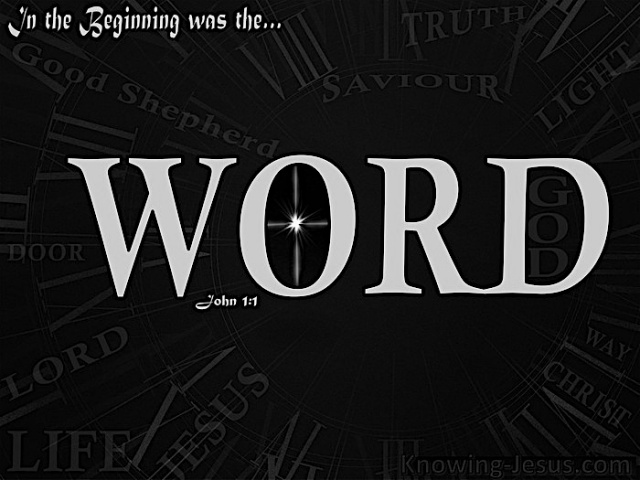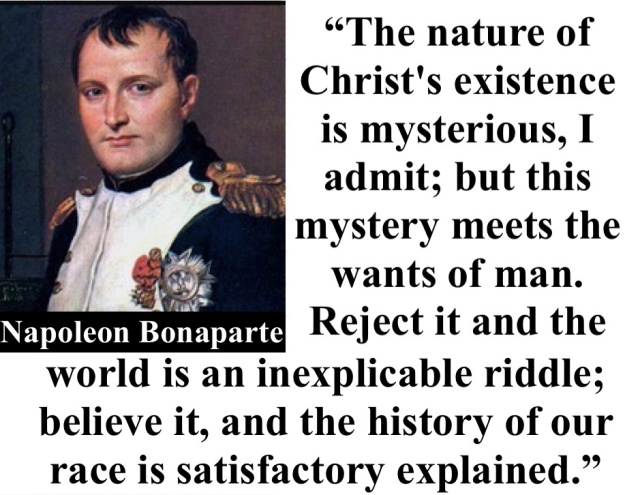THE WORD
The Introduction to the Gospel of John
 There are numerous proofs of the Bible’s divine inspiration, as we innumerate in Chapter 7: The Bible’s Reliability, in our book—The Bible: The Book of Books. I believe the Apostle John’s stroke of genius, in introducing Jesus Christ to the world as “the Word,” is one of them. There is, at least in my mind, no other explanation for the introductory words of John’s Gospel than a divinely inspired pen. How else can one explain this former Galilean fisherman penning such famous, profound, timeless, and universally understood words?
There are numerous proofs of the Bible’s divine inspiration, as we innumerate in Chapter 7: The Bible’s Reliability, in our book—The Bible: The Book of Books. I believe the Apostle John’s stroke of genius, in introducing Jesus Christ to the world as “the Word,” is one of them. There is, at least in my mind, no other explanation for the introductory words of John’s Gospel than a divinely inspired pen. How else can one explain this former Galilean fisherman penning such famous, profound, timeless, and universally understood words?
While the two targeted audiences of his Gospel—the Greeks and the Jews—were definitely captivated by John’s introduction of Christ as “the Word,” the attention of the world today is no less seized by what this introduction infers.
Today, we understand words as our chief means of communicating to one another. We communicate to each other in many ways. For instance, most wives can speak volumes to their husbands simply by the looks they give them. Still, our chief means of communicating to one another is words.
When he introduced Christ as “the Word,” 2,000 years ago, John communicated clearly to our modern-day world that Christ is God’s chief means of expressing Himself to us! According to Hebrews 1:1-3, God has communicated to man at different times and in various ways, providing the world with part and partial glimpses of Himself. Some good examples of this are creation, conscience and the Old Testament prophets. The author of Hebrews goes on to add, however, that God has now communicated to man “in these last days…by His Son, whom He hath appointed heir of all things [and] by whom also he made the worlds.”
Jesus Christ is God’s final “Word” to lost humanity. Unlike all previous revelations of God to man, Jesus Christ is the full revelation of God; that is, “the brightness of His glory, and the express image of His person.” All we need to do to see God is to look at Jesus.
A former popular TV game-show was well-known for its question: “Is that your final answer?” Well, when it comes to the problems of our world, Jesus Christ is God’s final answer. Make no mistake about it; when God said Jesus, He said it all. God has nothing else to say!
Not only does John’s 2,000 year old introduction of Jesus as “the Word” still speak volumes to us today, but it also spoke volumes to John’s two targeted audiences in his day. First, it spoke volumes to the Jews of John’s day. The Jews believed that words were alive. Once spoken, they went forth to accomplish the purpose for which they were spoken. Thus, spoken words could not be recalled.
This explains why the Hebrew vocabulary was relatively small and why the Jewish people tended to be persnickety about what they said. It also explains why Isaac did not recall his blessing of Jacob and confer it on Esau after discovering that he had been tricked into giving Esau’s blessing to Jacob (Genesis 27:1-40).
 By introducing Jesus as “the Word,” John presented Christ to the Jews as everything that God had ever said come alive. As the apostle poignantly puts it in John 1:14, “And the Word was made flesh, and dwelt [lived] among us.” Jesus Christ is the living Word of God!
By introducing Jesus as “the Word,” John presented Christ to the Jews as everything that God had ever said come alive. As the apostle poignantly puts it in John 1:14, “And the Word was made flesh, and dwelt [lived] among us.” Jesus Christ is the living Word of God!
As the living Word of God, Jesus Christ came into the world to carryout everything that God had ever spoken. This is why Jesus, at His baptism, had to tell the reluctant John the Baptist, “Let it be so now; it is proper for us to do this to fulfill all righteousness.” (Matthew 3:15 NIV). It also explains why Jesus taught that He had not “come to destroy the law, or the prophets…but to fulfill them” (Matthew 5:17).
According to Revelation 19:13, when Christ comes again He will be called “The Word of God.” Whereas He came the first time to carryout everything that God had ever said, He will come the second time to complete it. In the mean time, He can come into your life and fulfill for you every promise that God has ever made. As Paul teaches in 2 Corinthians 1:18-20, all of the promises of God can be yours in Christ. All you have to do is say “Amen” to Christ and He will bring God’s promises to pass in your life for “the glory of God.”
“How can I know this is true,” you may ask. You can know it because God has given you His “Word” on it! Why not take God at His Word and begin to experience and enjoy His promises today?
Not only did John’s introduction of Jesus as “the Word” speak volumes to the Jews of John’s day, but it also spoke volumes to the Greeks of John's day. To the Greeks, the “Logos” (Word) was what made sense of it all. Famous as philosophers, the Greeks believed that meaning could be found in anything if only enough words were spoken over it.
 By introducing Jesus as “the Word,” John clearly communicated to the Greeks that Jesus Christ is the one who makes sense of it all. It is Christ who makes the universe a cosmos instead of a chaos. It is Christ, and Christ alone, who gives meaning, reason and rhyme to life.
By introducing Jesus as “the Word,” John clearly communicated to the Greeks that Jesus Christ is the one who makes sense of it all. It is Christ who makes the universe a cosmos instead of a chaos. It is Christ, and Christ alone, who gives meaning, reason and rhyme to life.
According to the cockamamie theory of evolution: (1) The universe is a cosmic accident (2) We are the mere products of natural selection (3) Life has no meaning, and (4) There is nothing beyond this meaningless existence. When we add relativism—the belief that there is no such thing as absolute truth or right and wrong—to evolution, we end up in the morass of today’s meaningless society.
If there has ever been a day and time when John’s message was needed, it is our day and time. Never before has the world been so gripped by meaninglessness nor its masses so victimized by depression, which is the inevitable consequence of meaninglessness. According to the World Health Organization, worldwide depression is the leading cause of disability for people in midlife and for women of all ages.
What’s the cure for worldwide depression? Where in today’s meaningless world can we find meaning? Where can we find reason and rhyme in life? And where do we turn to make sense of it all in a seemingly senseless world? According to the Apostle John, the answer to all these questions is found in “the Word”—Jesus Christ!